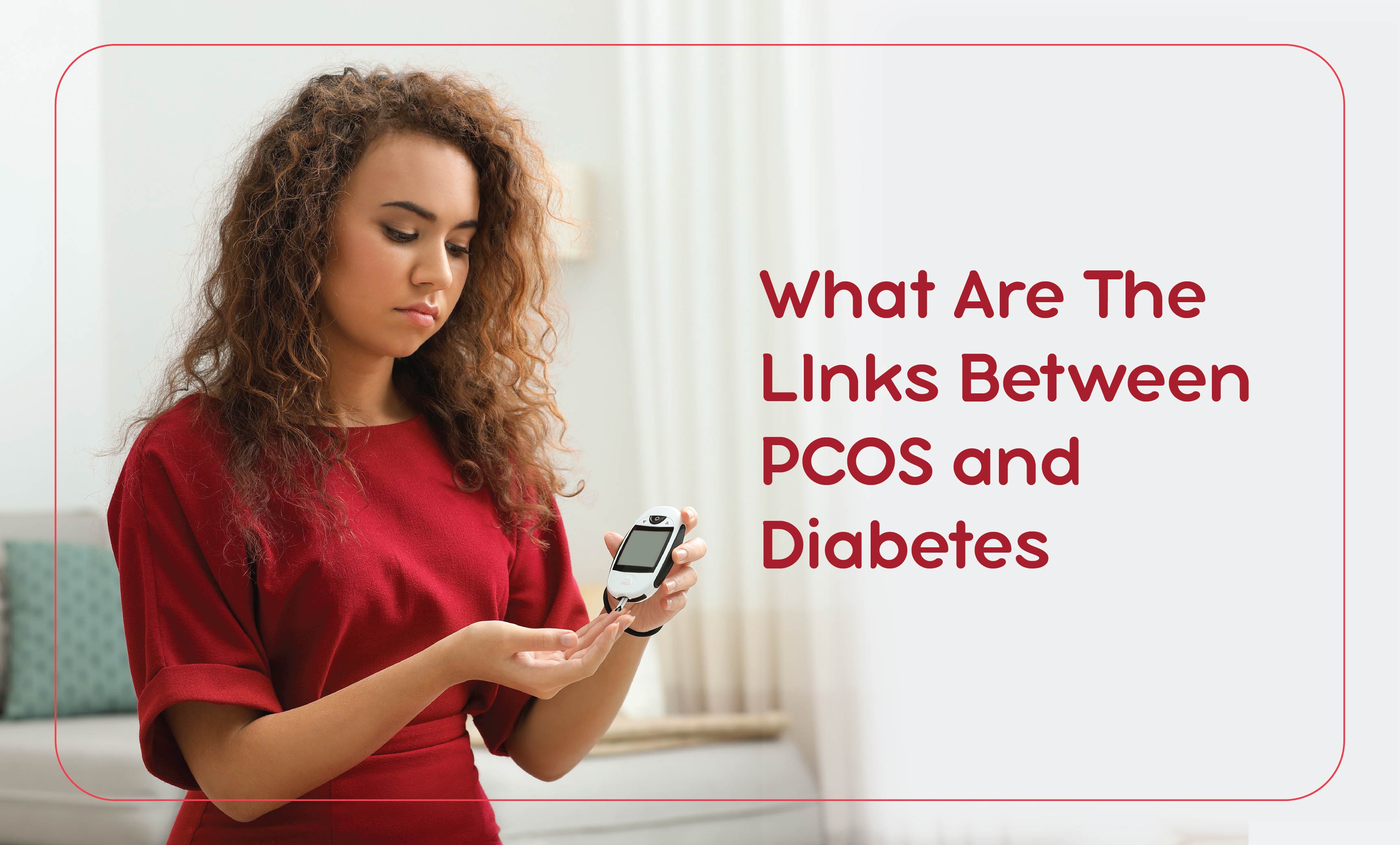
Polycystic Ovary Syndrome (PCOS) and diabetes are two conditions that significantly impact women's health. While they are distinct disorders, they share several common threads, making it crucial to understand their connection.
PCOS is a hormonal disorder common among women of reproductive age. It is characterized by the following symptoms:
The exact cause of PCOS is unknown, but it is believed to involve a combination of genetic and environmental factors.
Diabetes is a chronic condition that affects how your body turns food into energy. There are two main types:
Type 2 diabetes is more common and is the type most frequently associated with PCOS.
Diabetes is a chronic condition that affects how your body turns food into energy. There are two main types:
One of the strongest links between PCOS and diabetes is insulin resistance. Insulin is a hormone produced by the pancreas that allows cells to take in glucose (sugar) from the bloodstream to use for energy. In insulin resistance, the body's cells do not respond properly to insulin, causing the pancreas to produce more insulin to compensate.
Obesity is a common factor in both PCOS and type 2 diabetes. Excess body fat, particularly around the abdomen, is associated with increased insulin resistance. This can create a vicious cycle:
PCOS is characterized by hormonal imbalances, particularly high levels of androgens. These hormonal changes can impact insulin regulation and glucose metabolism, increasing the risk of developing diabetes.
Chronic low-grade inflammation is another link between PCOS and diabetes. Inflammation can contribute to insulin resistance, further connecting the two conditions.
There is evidence to suggest that genetic factors may play a role in both PCOS and diabetes. Women with a family history of either condition may be at higher risk of developing the other.
Women with PCOS are at a significantly increased risk of developing type 2 diabetes. Studies have shown that women with PCOS are four times more likely to develop diabetes compared to those without PCOS. This risk is present regardless of body weight, although obesity further increases the risk.
Given the strong link between PCOS and diabetes, managing PCOS effectively can help reduce the risk of developing diabetes. Here are some strategies:
Lifestyle Changes
A healthy diet can help manage both PCOS and diabetes. Focus on:
Regular physical activity can improve insulin sensitivity and help manage weight. Aim for at least 150 minutes of moderate-intensity exercise per week.
Even a small amount of weight loss (5-10% of body weight) can significantly improve insulin resistance and reduce PCOS symptoms
A healthy diet can help manage both PCOS and diabetes. Focus on:
Regular screening for diabetes is crucial for women with PCOS. This includes:
Chronic stress can exacerbate insulin resistance and worsen PCOS symptoms. Techniques such as mindfulness, yoga, and relaxation exercises can help manage stress levels.
Healthcare providers play a crucial role in managing PCOS and preventing diabetes. A multidisciplinary approach, involving endocrinologists, gynecologists, dietitians, and mental health professionals, can provide comprehensive care.
Regular check-ups with your healthcare provider can help monitor your condition and make necessary adjustments to your treatment plan. This is particularly important for managing insulin resistance and preventing the progression to diabetes.
Each woman's experience with PCOS and diabetes is unique. A personalized treatment plan that addresses individual symptoms, lifestyle, and risk factors is essential for effective management.
Living with PCOS and diabetes can be challenging, but with the right approach, women can manage their symptoms and lead healthy lives
Understanding your condition empowers you to make informed decisions about your health. Learn about PCOS and diabetes, their symptoms, and management strategies.
Connecting with others who have similar experiences can provide emotional support and practical advice. Consider joining support groups or online communities for women with PCOS and diabetes.
Managing chronic conditions can take a toll on mental health. Don't hesitate to seek support from mental health professionals if you're feeling overwhelmed or stressed
The links between PCOS and diabetes highlight the importance of understanding and managing these conditions. By recognizing the connection and taking proactive steps to manage PCOS, women can reduce their risk of developing diabetes and improve their overall health. With the right support and strategies, it is possible to live well with PCOS and prevent the onset of diabetes.
Dr. Shreya Sharma is a renowned endocrinologist based in Dehradun, known for her expertise in treating various hormonal disorders. With extensive experience in managing conditions such as diabetes, PCOS, she provides comprehensive and personalized care to her patients. Dr. Sharma is highly regarded for her patient-centric approach, focusing on education and prevention, and is dedicated to helping patients achieve optimal health through effective management and treatment of endocrine disorders.